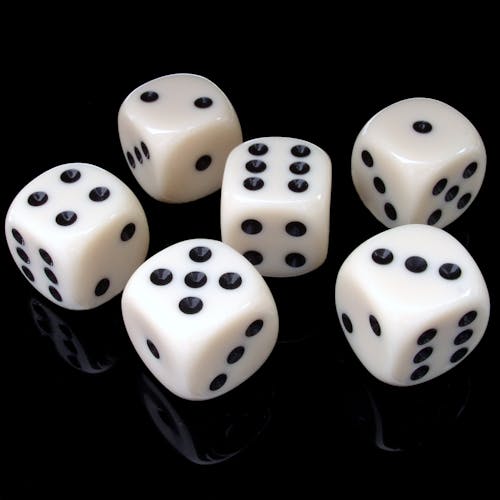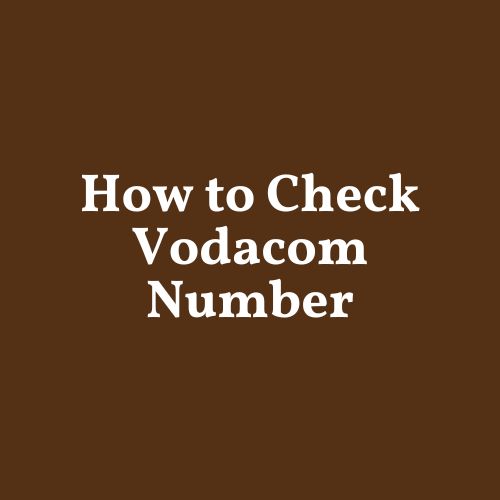Have you ever questioned why some numbers appear to pop up everywhere, tagged as ‘lucky’? From the quantity 7 in many cultures to 8 in China, it feels like success and numbers go hand in hand. This fascination isn’t always new; it is a story as ancient as time.
Across the globe, people maintain sure numbers shut to their hearts, believing in their strength to carry good fortune. Let’s take a closer look at how lucky numbers grew to be a regular language of hope and luck.

Ancient Civilizations and Their Use of Numbers
Long earlier than numbers stuffed our math textbooks, historical people have used them in approaches that would surprise you. Imagine dwelling in a time when numbers had been used not simply for counting but were believed to maintain magical powers.
In historical Egypt, numbers helped predict the flooding of the Nile. In Babylon, they had been key to grasp the heavens. This wasn’t simply about practicality; it was once about the trust that numbers linked the earthly with the divine.
For instance, the wide variety of 12 held an exceptional place. Think about it: 12 months in a year, 12 symptoms in the zodiac.
This wasn’t an accident; however, it was a reflection of how deeply numbers had been woven into the material of historical lives. They weren’t simply counting days; they had been marking the rhythm of the universe.
Numerology and Its Significance in Various Cultures
Now, let’s chat about numerology. This isn’t always your common wide-variety game. Numerology is the faith that numbers have mystical meanings. It’s like every wide variety has its very own personality, influencing the whole lot, from your lifestyle course to your luck.
Across cultures, numerology has formed traditions and beliefs. In China, the wide variety of eight is considered tremendously fortunate due to the fact it sounds like the phrase for wealth.
Meanwhile, in many Western cultures, 13 receives a terrible rap, frequently skipped in hotel ground numbers. But it is no longer all about luck. Numerology dives deep, suggesting that your beginning date can even have an impact on your features and destiny.
So, why do unique cultures cherish special numbers? It’s a combination of history, language, and tradition. What’s unfortunate in one place may want to deliver a fortune in another.
This indicates how numbers can bridge worlds, carrying special testimonies and meanings throughout time and geography.
Cultural Perspectives on Lucky Numbers
The fascination with fortunate numbers transcends mere superstition; it is a reflection of humanity’s enduring search for that means and education in the universe’s vastness.
Amidst these cultural narratives, many humans nowadays flip to their horoscope lucky numbers for today as a guide. Whether for choosing lottery numbers or identifying dates for necessary events, these each-day predictions provide a combo of hope and excitement, intertwining historic beliefs with present-day everyday life.
Chinese Culture: The Importance of Specific Numbers
In Chinese culture, numbers don’t seem to be simply numbers. They’re a massive deal, carrying deep meanings and influencing existence decisions.
Take the range 8, for example. It’s regarded as exquisite fortunate due to the fact its pronunciation sounds like the phrase for prosperity. That’s why you will see it everywhere—from telephone numbers to addresses—everyone desires a piece of this fortunate charm.
Then, there may be the quantity 6, symbolizing smoothness and success. It’s about matters going as nicely as they, perchance, can. And do not forget about 9, which stands for durability and eternity.
These numbers don’t seem to be simply famous by means of chance; they’re chosen with purpose, enjoying a big position in festivals, weddings, and even enterprise launches.
Western Beliefs: Common Lucky Numbers and Their Origins
Switching gears to the West, the quantity 7 steals the spotlight. Ever heard of the “Seventh Heaven” or “Lucky Number Seven”? There’s a motive why 7 is a large deal in Western cultures. It pops up everywhere—from the seven wonders of the world to seven days of the week. This range is regularly related to luck, perfection, and gaining knowledge.
But it is now not simply what 7 is and what its importance is. Take 3, for instance. It’s considered effective due to its common look in testimonies and phrases, like “third time’s the charm.”
These numbers have woven their way into Western traditions and superstitions like using the melbet code promo 2024.

Religious Significance
Throughout history, numbers have woven their way into the cloth of religions, serving as symbols of faith, guidance, and divine blessing. In the tapestry of non-secular beliefs, numbers illuminate paths to enlightenment and signify quintessential truths.
Lucky Numbers in Religious Texts and Practices
In Christianity, the range 7 shines as a beacon of perfection and godly completion. It’s a cornerstone in the Advent story and an image of divine wisdom.
Meanwhile, in Islam, the wide variety of 7 marks, the symbolic number 786, and the circuits around the Kaaba embody devotion and the spiritual journey.
Buddhism cherishes the variety 8, mirroring the Eightfold Path to Nirvana. This route affords a blueprint for moral dwelling and spiritual awakening, displaying how numbers inform us toward a greater understanding.
Rituals and Lucky Numbers
Numbers are now not simply symbols; they’re lively members of non-secular rituals. Hindus preserve the wide variety of 108 sacred objects and the usage of malas with 108 beads to meditate and join with the divine.
In Christianity, the lifestyle of novenas includes 9 days of prayer, looking for blessings, and expressing devotion through a range of humans believed to keep divine power.
These examples underscore numbers’ pivotal position in spiritual observance, bridging the earthly and the divine and inviting believers into deeper contemplation of the universe’s mysteries.
Historical Events and Lucky Numbers
The impact of fortunate numbers stretches past religious and geographical regions into the annals of history, the place where they’ve performed pivotal roles in shaping occasions and guiding destinies.
Numbers Shaping Fate
Consider the historical fascination with certain dates, like the eleventh hour of the eleventh day of the eleventh month, marking the give up of World War I. This alignment of numbers has been seen as a harbinger of peace, its symmetry symbolizing a momentous cessation of conflict.
In historical Rome, the Ides of March (the 15th), as soon as regarded as a fortunate day for settling debts, grew to become infamous as the date of Julius Caesar’s assassination. This tournament shifted the understanding of this date, intertwining good fortune with fate’s inexorable pull.
In this rich tapestry of traditions and beliefs, the things on Umembeso reminds us of the beautiful ways in which numbers intertwine with cultural celebrations.
Umembeso, a significant celebration among the Zulu people of South Africa, is a vibrant example of how numbers and their auspicious meanings are woven into the fabric of our lives.
This traditional wedding ceremony, marking the union of two families, is replete with rituals that often incorporate numbers considered to be lucky, further highlighting the universal allure of these special digits.
In Summary
It’s clear that fortunate numbers are more than simply superstition. They raise weight, meaning, and sometimes, the promise of fortune and favor. They join us in our past, information choices in the present, and even encourage hope for our future.
Whether it is the variety eight in China symbolising wealth, the variety 7 in Western cultures representing perfection, or the sizeable dates that have formed our world, fortunate numbers are a testimony to humanity’s enduring search for means and success in the universe.
But remember, the real allure of these numbers lies no longer simply in the digits themselves but in the beliefs and movements they encourage in us. They inspire us to see past the ordinary, to locate importance in the patterns of life, and, perhaps, to make our personal success along the way.



